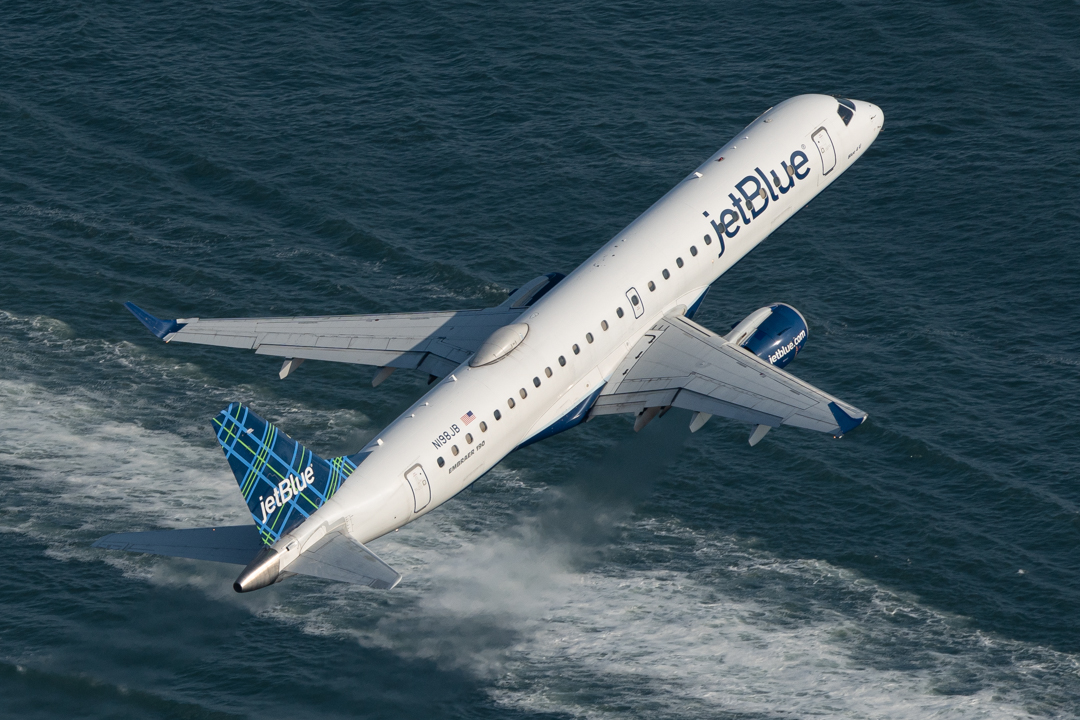The Senate has introduced a proposal for an organization that would help keep the American aerospace and aviation industry competitive. Called the National Center for the Advancement of Aviation, the NCAA (not to be confused with the National Collegiate Athletic Association) has already gained immense support from organizations including the Aircraft Owners and Pilots Association (AOPA), which is a large political NPO that supports and advocates for general aviation.
The bill was introduced by Senator Tammy Duckworth, a Democrat from Illinois, as well as a pilot and veteran. She worked with Senator Jim Inhofe, a Republican from Oklahoma and Chair of the Senate Armed Services Committee.
Benefits of the NCAA would include the ability to "help ensure science, technology, engineering, and math (STEM)-based aviation curriculum reaches the 25,000-plus high schools across the country, assist in apprenticeships, and help military veterans and others transition to good paying technical jobs in the aviation industry." Hundreds of thousands aviation entities, including schools, individuals, businesses, and other aviation bodies have written a letter of support, which you can view here.
Senator Inhofe was quoted as saying "I am proud to introduce this bill to establish the National Center for the Advancement of Aviation with Sen. Duckworth today In the more than 100 years since Wilbur and Orville Wright conducted their historic flights at Kitty Hawk, our nation has seen aviation in the United States grow, powered by the individual passions of pilots, aviators and countless others. To continue this legacy, our bipartisan legislation would create an independent, stakeholder-led national center where all aviation and aviation-related stakeholders can work in concert to address the demands and challenges associated with a safe and vibrant national aviation system. As a national forum for cross-disciplinary collaboration, this center would: support aviation and aerospace education and curriculum efforts; leverage industry expertise to develop and deploy the needed workforce of trained and qualified pilots, engineers and maintainers; and serve as a central repository of economic and safety data for all stakeholders. The NCAA will advance a collaborative process to promote aviation in the United States and assist in the development of the next generation of aviation and aerospace workers. I appreciate all the input and support from stakeholders across the aviation community that have made today's legislation possible."
Senator Duckworth said, "As a pilot, I know that investing in aviation-focused education and workforce development programs helps attract and retain the best talent and keeps our nation at the forefront of global aviation innovation," said Duckworth. "I'm proud to introduce the National Center for the Advancement of Aviation Act with Sen. Inhofe to support the development of next-generation aviators and foster collaboration in the aviation and aerospace industries to help meet the demands and challenges of tomorrow."
To a read a summary of the bill, which was presented as S. 3360, click here, and to read the whole bill, click here.
Sources:
Austrian Airlines Abruptly Terminates Wet Lease with Braathens Regional Airlines » Air Canada Rouge to Launch Boeing 737 MAX 8 Operations » The Runway is Obsolete: Jekta Swiss is Resurrecting the Flying Boat for the 21st Century »
Comments (0)
Add Your Comment
SHARE
TAGS
NEWS Aviation center congress governmentRECENTLY PUBLISHED
 End of an Era: JetBlue's Farewell to the Embraer E190
On September 9, 2025, after nearly two decades of service, JetBlue Airways brought an end to an era with the retirement of its Embraer E190 fleet.
INFORMATIONAL
READ MORE »
End of an Era: JetBlue's Farewell to the Embraer E190
On September 9, 2025, after nearly two decades of service, JetBlue Airways brought an end to an era with the retirement of its Embraer E190 fleet.
INFORMATIONAL
READ MORE »
 Cities in the Sky: The Future Built on eVTOL Flight
Imagine stepping out of your office, walking to a nearby rooftop, and moments later lifting off vertically into the sky — no airport lines, no traffic, just a silent hop across the city. This future is no longer science fiction; it's the foundation of what could be aviation's biggest innovation since the jet age.
INFORMATIONAL
READ MORE »
Cities in the Sky: The Future Built on eVTOL Flight
Imagine stepping out of your office, walking to a nearby rooftop, and moments later lifting off vertically into the sky — no airport lines, no traffic, just a silent hop across the city. This future is no longer science fiction; it's the foundation of what could be aviation's biggest innovation since the jet age.
INFORMATIONAL
READ MORE »
 The Runway is Obsolete: Jekta Swiss is Resurrecting the Flying Boat for the 21st Century
AeroXplorer sat down with George Alafinov, CEO & Co-founder of Jekta Swiss. In conversation, he discussed the company's unique value proposition and how he sees his aircraft revolutionizing the amphibious aircraft industry.
STORIES
READ MORE »
The Runway is Obsolete: Jekta Swiss is Resurrecting the Flying Boat for the 21st Century
AeroXplorer sat down with George Alafinov, CEO & Co-founder of Jekta Swiss. In conversation, he discussed the company's unique value proposition and how he sees his aircraft revolutionizing the amphibious aircraft industry.
STORIES
READ MORE »



